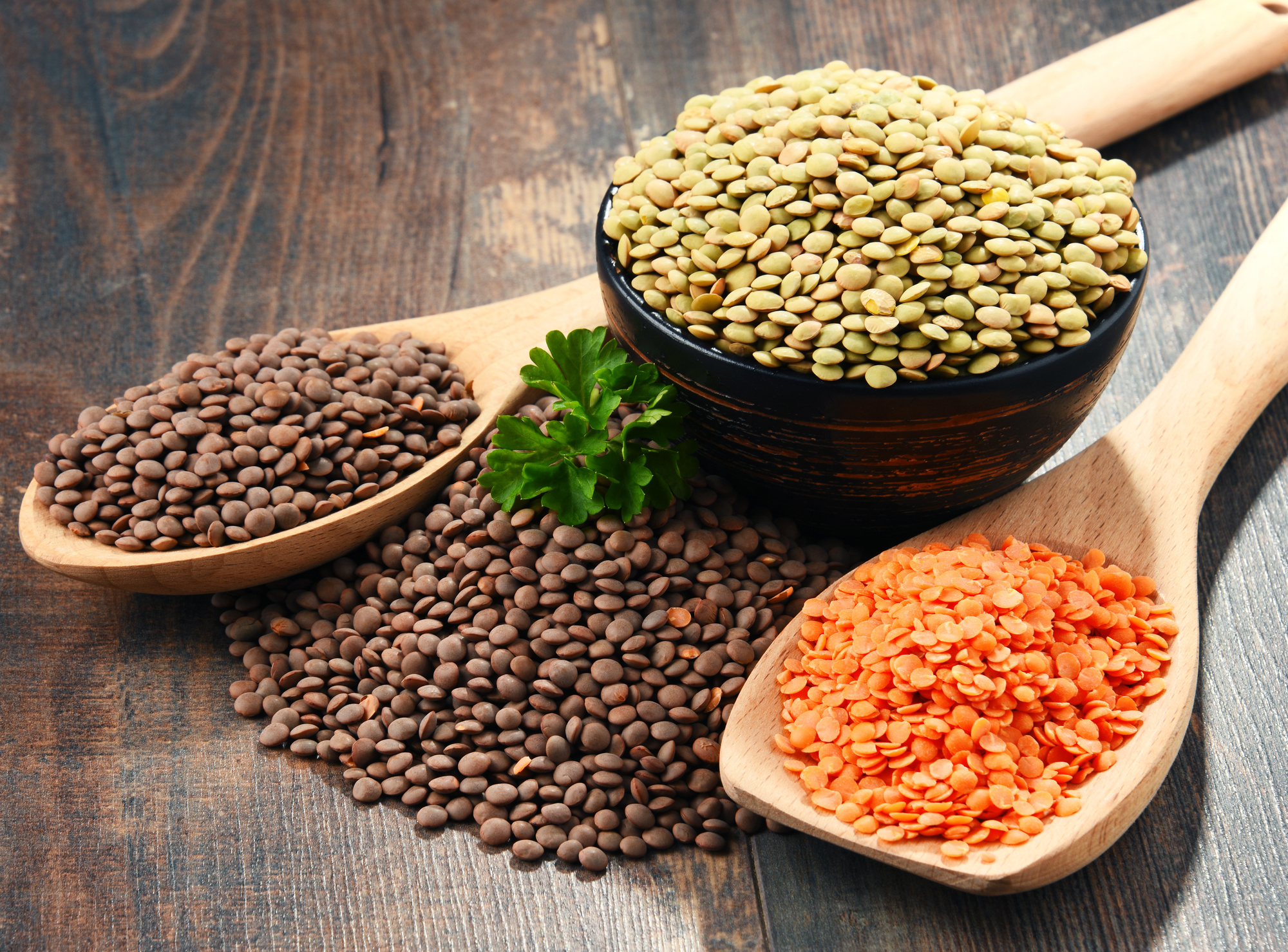
Americans love their red meat and all the protein it contains. While meats and dairy products are the quickest way to add protein to your diet, there are also a ton of great plant-based options.
You might scoff at the idea of replacing meat with plants. But studies have found that eating a high plant-based diet results in a lower risk of heart disease.
Other skeptics might worry about the lack of amino acids in plant-based proteins. But the right meatless protein packs a ton of nutrients, plus a few of them have the same amount of amino acids as normal protein sources.
If you’re looking to make the switch to a healthier vegetable-heavy lifestyle without losing the protein, don’t worry. We’ve made a list of 9 plant-based proteins to add to your diet.
1. Beans
Beans, specifically black beans, are a superstar vegan protein. Half a cup of canned black beans has seven grams of proteins. They’re also a great source of fiber, which can help you stay full longer.
Black beans are one amino acid short of being a “complete protein.” To make up for that one nutrient, you can combine them with rice or corn. They also contain an amino acid called leucine, which is great for weight loss and boosting your metabolism.
2. Nuts
Most people are wary of nuts because of the high-calorie count and fat content. But they have a ton of protein. Almonds have six grams of protein per ounce, and cashews have five.
Despite the high calorie and fat count, nuts are not linked to weight gain. Regardless you’ll still need to exercise some portion control.
If you’re looking for a way to add more nuts to your diet, try sprinkling them in salads. You can also add them on top of your Asian stir-fry for extra flavor and crunch. Bake them into healthy bran muffins, or grind them to add to your smoothies.
3. Tofu
Tofu is one of the best staple plant-based proteins. It’s a perfect base for vegetarian dishes because tofu soaks up many different flavors.
Tofu is made from soybeans, has 10 grams of proteins and five grams of fat per half-cup. You can saute it, mix it in different dishes, or fry it. It’s often found in Asian dishes.
Either way, we don’t suggest using it as a main part of the meal. It should compliment the other flavors in the dish.
4. Quinoa
This grain is one of the few “complete” plant-based proteins. A quarter of a cup has seven grams of protein, 170 grams, and 2.5 grams of fat. You can boil it with water, or different broths for a more flavorful serving of quinoa.
Quinoa has all the essential amino acids missing from many plant-based proteins. You can replace rice in your dishes with quinoa as a regular way to add protein to your vegetarian meals. You can also mix it with different spices, like rosemary, as well as different cheese for a quick snack.
5. Tempeh
If you’re tired of tofu, try tempeh. It’s another form of cooked soybeans, but unlike tofu, it’s a complete protein. This is because they ferment the soybeans in tempeh, which helps add the extra amino acids that most other meatless protein options lack.
Tempeh is a dense cake of fermented soybeans with a nuttier taste than tofu. You can pan-fry it or stir-fry it with rice, other vegetables, and soy sauce.
A half a cup of tempeh has an enormous 15 grams of protein, but it also has nine grams of fat.
6. Peanut Butter
When you ate all those peanut butter and jelly sandwiches from childhood, I bet you didn’t know you were eating about 7 grams of protein.
Although it’s tempting to eat peanut butter by the spoonful, the key to eating peanut butter is portion control. Peanut butter has a high amount of oil and fat. If you want the taste of peanut butter without the calories, look into powered peanut butter. It’s a perfect way to add peanut butter to your smoothies.
7. Lentils
Lentils are a powerhouse protein for vegetarians. They’re about as versatile as tofu because it can morph into a ton of different vegetarian dishes. Once they’re cooked, lentils are incredibly malleable and versatile.
With 9 grams of protein per 1/2 cup, you can use lentils to make soups, veggie-burgers, hummus, and lentil salads. Mediterranean lentil soups are filling and perfect for cold winter nights. Use black lentils, red lentils, and brown lentils in your dishes for different flavors and colors.
8. Edamame
You’ve seen edamame on the menu at a Japanese sushi restaurant. They’re often served steamed with salt, and you have to shell them at the table.
The reason they’re a great appetizer at sushi restaurants is because of the high protein content. One cup of cooked edamame is 18 grams of protein.
Serve them as an appetizer, eat them as a snack, or add them to your dishes. You can create sushi bowls and sprinkle them on top for added texture and protein.
9. Chia Seeds
Chia seeds have about 6 grams of proteins in two tbsp, but more importantly, they have 33% of your daily fiber. Doctors have proven that diets high in fiber promote weight loss, making chia seeds your best friend.
Add chia seeds to your smoothies, or mix them in your yogurt. If you soak them in milk overnight, they’ll become a tapioca-like pudding. You can also bake them into muffins or bread instead of the typical poppy-seeds.
Want More Diet Tips for Plant-Based Protein Meals?
Chirothin is a doctor approved food plan that will help you lose weight the healthy way. Besides our tips on adding plant-based proteins to your diet, we have great information about how to lose weight and keep it off.
Looking for a ChiroThin doctor? Click here.
